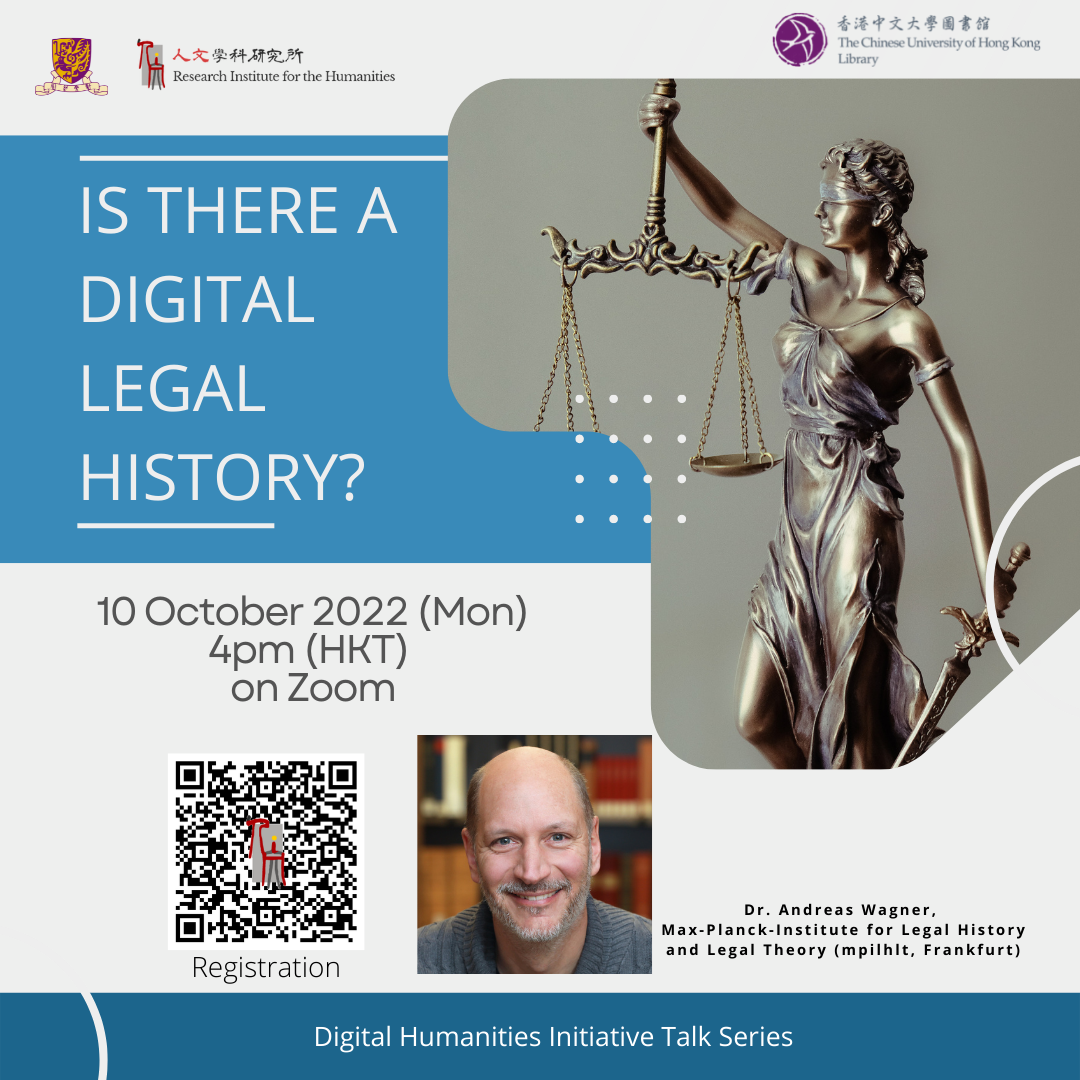Is There a Digital Legal History?
DIGITAL HUMANITIES INITIATIVE TALK SERIES
Is there a Digital Legal History?
Speaker: Dr. Andreas Wagner, Digital Humanities Coordinator, Max-Planck-Institute for Legal History and Legal Theory (mpilhlt, Frankfurt)
Date: 10 October 2022 (Mon)
Time: 16:00 – 17:30 (HKT)
Online via Zoom
Medium of Instruction: English
Registration: https://bit.ly/3RDyI10
Registration Deadline: 7 October 2022 (Friday)
About the event
In this talk, Dr. Wagner will sketch how, in legal historical literature, Digital Humanities develop a profile distinct from literary, historical and empirical legal studies. In comparison to other literary genres, the law’s emphasis on proven efficiency and predictability, rather than on originality, means that text re-use strategies are paramount. However, different legal contexts employ different terminology (what one English-language constitution calls a chamber, another may call a house) posing significant challenges. In contrast to ‘general’ historical studies, legal history is interested in extracting normative motives – prescriptions, conditions, roles – from sources directly rather than extracting events, persons, places and perhaps extrapolating historical regimes of normativity from that basis. Finally, compared with applied legal and empirical legal studies, the formulaic style that is common in legal sources (and convenient for processing) contrasts with the less-resourced and non-regular character of historical languages.
About the speaker
Dr. Andreas Wagner (https://orcid.org/0000-0003-1835-1653) is Digital Humanities Coordinator at the Max Planck Institute for Legal History and Legal Theory in Frankfurt, and collaborator of the project “The School of Salamanca” of the Academy of Sciences and Literature in Mainz. He has obtained a PhD in philosophy in 2008, and has worked with digital methods and digital editions since 2013. In terms of DH, his main areas of interest are Digital Editions, NLP and Knowledge Graphs; however, he is also still studying and publishing on early modern political and legal thought. Topics of his recent publications include early modern international law, data modelling with uncertain knowledge, and text mining in legal history.


